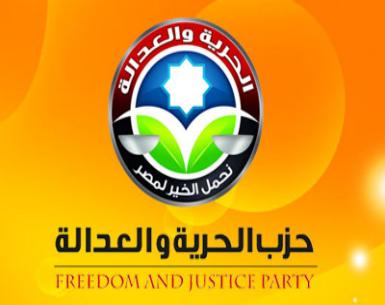 On February 13, the Cairo Institute for Human Rights Studies (CIHRS) participated in a second meeting at the Ministry of Justice to discuss the new NGO law[1]. During the meeting, CIHRS representatives received a copy of the draft law submitted by the Ministry of Local Development, overseen by Mohammed Ali Bishr, a member of the Freedom and Justice Party (FJP) and a well-known leader of the Muslim Brotherhood. Representatives of the Ministries of Justice, Social Affairs, and Local Development at the meeting confirmed that this was the law sponsored by the FJP.
On February 13, the Cairo Institute for Human Rights Studies (CIHRS) participated in a second meeting at the Ministry of Justice to discuss the new NGO law[1]. During the meeting, CIHRS representatives received a copy of the draft law submitted by the Ministry of Local Development, overseen by Mohammed Ali Bishr, a member of the Freedom and Justice Party (FJP) and a well-known leader of the Muslim Brotherhood. Representatives of the Ministries of Justice, Social Affairs, and Local Development at the meeting confirmed that this was the law sponsored by the FJP.
The FJP bill adopts the same repressive framework found in the Ministry of Insurance and Social Affair’s draft[2]. It aims to nationalize civil society, designating the assets of civic associations and bodies — as well as domestic funds received by foreign organizations — public funds. It prohibits foreign funding for civic associations except with approval from the Minister of Insurance and Social Affairs, and gives the Minister the right to reject funding without cause. The FJP proposed draft law also contains provisions for security control over NGOs’ operations, in the form of a so-called coordinating committee. The law maintains liberty-depriving penalties for violations of its provisions. It further states that the activities of foreign organizations must be consistent with “the needs” of Egyptian society. In other words, it gives the coordinating committee that consists of members of different ministries including the Egyptian intelligence bodies, the power to prohibit certain civic activities of foreign organizations based on vague, overly broad formulations.
when the Supreme Council of the Armed Forces was in charge of the country’s political affairs, before the election of President Morsi and the formation of a Muslim Brotherhood-dominated government, The FJP submitted a progressive draft NGO law to the now-dissolved People’s Assembly in April 2012[3], following, at that time, input on the draft law by CIHRS. Nevertheless, the current draft has little relation to the law proposed in April 2012. In fact, it is virtually identical to the law submitted last week by the Ministry of Social Affairs, with only few minor differences. This supports the conclusions of the CIHRS statement issued on February 7, 2013, which stated that the Ministry of Social Affairs’ plan to nationalize civil society and turn it into a quasi-governmental apparatus is, in fact, a project advanced by President Morsi’s government.
Share this Post

